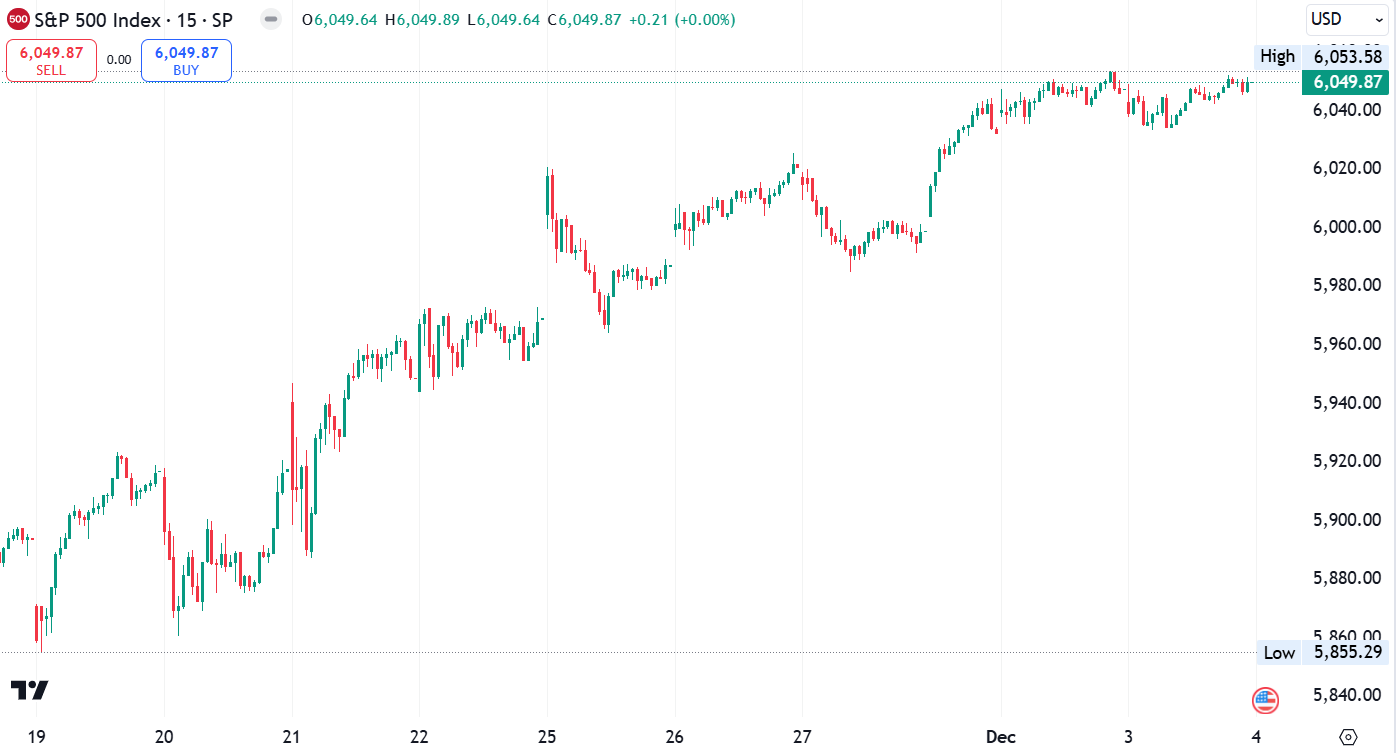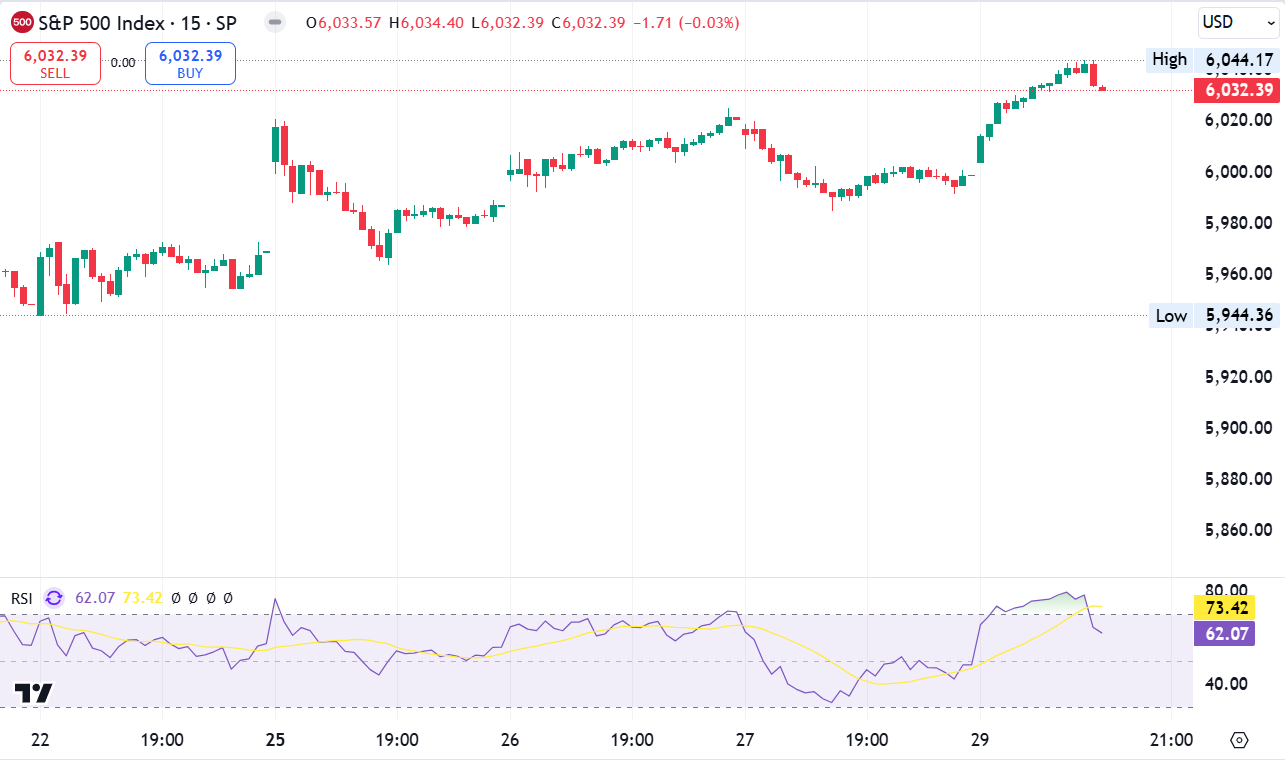
Nikkei 225 Faces Setback Due to Stronger Yen
Yen’s Strength Puts Pressure on Nikkei 225
The Nikkei 225, a key Japanese stock index, fell 0.66% to close at 38,110.22 on Monday. This Nikkei 225 decline was primarily due to a stronger yen, which put pressure on chip and auto exporter stocks. Despite recovering from an earlier 1.4% loss, the market still ended the day lower. The Nikkei 225 Volatility, which measures implied market volatility of Nikkei 225 options, decreased 6.45% to 25.38.
Several factors are currently influencing market sentiment. Nvidia’s strong performance in 2024 may impact financial markets this week as earnings reports and outlook approach volatile winter months. Meanwhile, the yen’s rise to a three-week high is affecting export-oriented companies, contributing to the stock market’s decline.
Central bank policies are playing a significant role in shaping market dynamics. Bank of Japan (BoJ) Governor Ueda has opposed the hawkish stance of US Federal Reserve Chair Powell. Ueda reiterated plans to follow a long-term rate increase if inflation sustainably reaches the 2% target. Meanwhile, the US Federal Reserve is anticipated to cut rates, which generally benefits stocks. However, these expected ‘hike fed dovish’ policy changes have already been factored into market expectations.
Japan’s economic indicators are also influencing market sentiment. The country’s core inflation rate rose for the third consecutive month in July. However, a potential pullback in demand-driven price gains could complicate the BoJ’s decision to raise rates.
Market analyst Yasuda notes that the differing monetary policies between the BoJ and the Fed are affecting stock market performance. While the Fed is expected to cut rates, the BoJ is now working towards raising rates, creating a divergence in policy directions. This policy difference is having a notable impact on the stock market, as investors adjust their strategies to account for these contrasting approaches from major central banks.
NI225/JPY 5-Day Chart
Japanese Shares: Komatsu Acquisition & Corporate Updates
Komatsu, a Japanese firm, announced plans to acquire the remaining stock in UMW Komatsu Heavy Equipment in Malaysia, aiming to increase its stake to 100% and convert it into a wholly-owned subsidiary. Following this announcement, Komatsu’s stock value declined by more than 2% in recent corporate updates.
Semiconductor Sector
Heavyweight chip-related shares declined despite a 2.79% increase in the US semiconductor measure on Friday. Tokyo Electron fell by 2.43%, Advantest by 2.51%, and Screen Holdings by nearly 2%.
Automotive Sector
The auto sector had the worst performance among the 33 industry sub-indices listed on the Tokyo Stock Exchange, down 2.87%. Toyota Motor fell 3.15%, leading the Topix index lower. Honda lost over 3% of its market share.
Retail and Consumer Goods
Nitori Holdings, a retailer of kitchen and furniture goods, saw its stock rise 3.95% due to hopes that a stronger yen would improve its outlook. Fast Retailing, the company that runs Uniqlo, is up more than 2%.
Technology and Conglomerates
SoftBank Group remained flat. Among other tech companies, Panasonic is down more than 1%, Sony is down nearly 1%, and Mitsubishi Electric and Canon are down nearly 2%.
Banking Sector
Mizuho Financial is falling more than 2%, Mitsubishi UFJ Financial is losing nearly 2%, while Sumitomo Mitsui Financial is increasing by 0.5%.
Overall Market Performance & Yen
The overall Topix dropped 0.87% to 2,661.41. The yen’s strength generally moves against the stock exchange rate, as it reduces exporters’ competitiveness and increases the cost of exporters’ stocks for foreign investors.
BoJ’s Rate Decision and Response Regarding the Rate
Ueda said that while the BOJ’s rate hike in July caused a sharp reversal of “one-sided yen falls,” the market volatility observed in early August was caused by growing fears of a US recession, fuelled by the nation’s weak economic data.
The comments imply that the BOJ may take longer than anticipated to decide on its upcoming rate hike. However, it will continue progressively raising borrowing costs from its extremely low levels.
Following Ueda’s remarks, the yen gained value relative to the dollar because investors assumed that additional rate hikes were imminent.
In July, the BOJ elevated its brief policy interest rate to 0.25%, significantly departing from its radical stimulus program that lasted ten years. In March, the BOJ ended negative interest rates.
A market meltdown following the unexpected rate hike in July and Ueda’s hawkish signal compelled his deputy to provide dovish guarantees that no raise would occur until markets stabilised.
Final Thoughts
The Japanese economy faces challenges as global markets adjust to anticipated rate cuts in the United States. These challenges include shifts in Japanese government bonds and the impact on Hong Kong’s markets. The Bank of Japan’s approach to raising rates will be crucial in navigating Japan’s economic pressures and sustaining global market stability.
The post Nikkei 225 Faces Setback Due to Stronger Yen appeared first on FinanceBrokerage.



